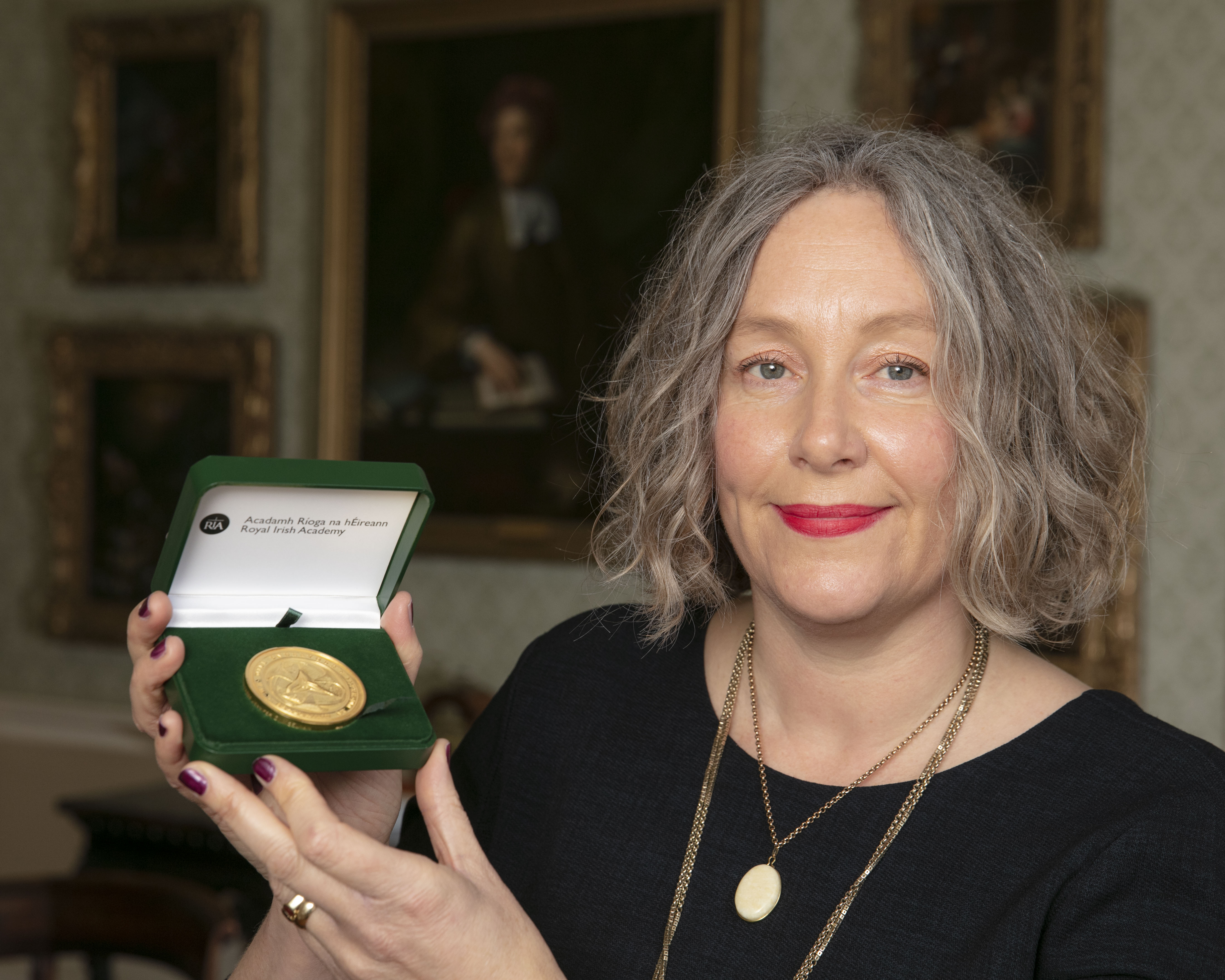Jennifer C. McElwain MRIA

Image caption: Jennifer C. McElwain MRIA, 2021 RIA Gold Medallist in the Environmental Sciences and Geosciences.
Citation on the awarding of the 2021 RIA Gold Medal in the Environmental Sciences and Geosciences to Jennifer C. McElwain MRIA
Written on 04 April 2022
Professor Jennifer C. McElwain is an internationally recognised pioneer in the reconstruction of paleo-atmospheric composition using fossil plant proxies. For over two decades her research has focused on the interface between the biological and geological sciences, where she has crafted a unique niche as a renowned palaeobotanist, bringing palaeoecological insights to contemporary plant science and an Earth system perspective to palaeobotany. She has achieved this by positioning her work at the forefront of experimentally testing and applying paleo-CO2 proxies to intervals of past environmental and biotic change.
Professor McElwain has spearheaded the development of novel paleo-ecophysiological traits that can now be applied to fossil plants to test the role of vegetation change and the evolution of plant function in forcing critical shifts in Earth system processes. Her research has delivered major breakthroughs in understanding the coupled evolution of plants and the atmosphere on geological timescales with a major focus on atmospheric CO2 and O2.
The application of the stomatal proxy method and its continued refinement and experimental testing by McElwain and her research team have revolutionised understanding of changing atmospheric CO2 through Earth history. McElwain’s work has been underpinned by coupled perspectives in Earth system science and plant ecophysiology, ecology and evolution. Without McElwain’s continued improvement and application of the plant-based CO2 proxy to climate critical intervals in Earth history such as biological mass extinction events, oceanic anoxic events and extreme volcanic episodes, subsequent studies on the geological causes and biological consequences of major global change events would not have been possible. Similarly, advances in understanding of the factors and processes driving the long-term carbon cycle, climate and ice sheet/sea-level dynamics through Earth history have been shaped by McElwain’s major contribution to the baseline CO2 record over highly dynamic climatic intervals such as the Late Pennsylvanian and Eocene/Oligocene climate transition.
She has contributed to the global reach of her discipline through her leadership: Chairing international conferences, contributing invited commentaries, her commitment to public outreach and her appreciation, support and engagement of science-art collaborative endeavours.
Professor McElwain has directed numerous high-profile, multi-million-euro research teams/projects, she has successfully mentored 14 post-doctoral fellows and 16 PhD students through these awards and she has played a leading role in the establishment and funding of award-winning national-scale experimental infrastructure in Ireland. She is a generous and wise mentor to her lab members past and present and an inspirational teacher to her undergraduate students. She is a fellow of Trinity College Dublin, a member of the Royal Irish Academy and a President’s Medal awardee of the Palaeontological Society.
Professor McElwain is a highly regarded and innovative international leader in the field of palaeobiology. She holds the 1711 full Professorial Chair of Botany at Trinity College Dublin, Trinity’s oldest established Chair. She is the current Director of the Trinity Botanic Garden, she is Head of the Department of Botany and she Chairs the Royal Irish Academy’s Climate Change and Environmental Science Committee. We are all familiar with how fossils tell us about the past, through Jenny’s pioneering multidisciplinary research we can apply knowledge of plant fossils to help us understand the precarious future of our planet.
